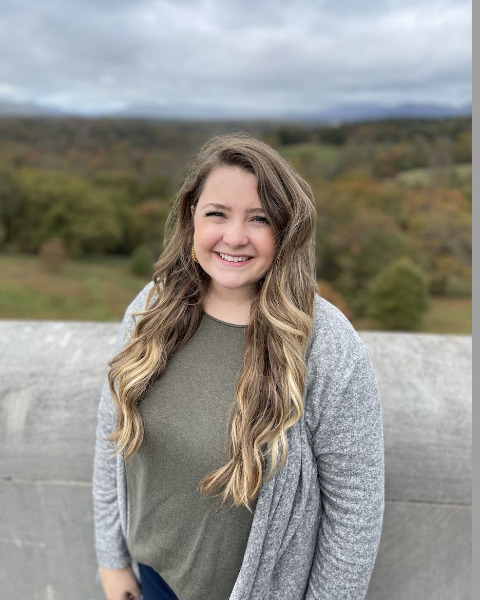(Re)habilitation and Counseling (C)
PP108 - Hearing Loss Health Literacy of Speech-Language Pathologists: What Audiologists Need to Know

Ellie Cooper, M.S.,CCC-SLP, LSLS Cert. AVT (she/her/hers)
PhD Candidate
University of South Carolina
University of South Carolina, South CarolinaFinancial Disclosures: I do not have any relevant financial relationships with anything to disclose.
Non-Financial Disclosures: I do not have any relevant non-financial relationships with anything to disclose.- SA
Sarah Allen
I do not have any relevant financial / non-financial relationships with any proprietary interests.
- KW
Krystal Werfel, PhD
Boys Town National Research Hospital
Financial Disclosures: I do not have any relevant financial relationships with anything to disclose.
Non-Financial Disclosures: I do not have any relevant non-financial relationships with anything to disclose.
Lead Presenter(s)
Contributor(s)
Contributor (Not Presenting)(s)
This session will discuss a mixed methods study that explored hearing loss health literacy of speech-language pathologists (SLPs). Audiologists and SLPs work closely to support individuals who are deaf or hard of hearing (DHH); however, SLPS report low confidence in treatment for children who are DHH. In this study of over 300 SLPs with varying levels of education and on-the-job experience, hearing loss health literacy was explored via survey. Additionally, interviews were conducted to gain insight into SLPs’ experiences with DHH patients. Clinical applications to audiological practice to better support the collaborative relationship with audiologists and SLPs will be discussed.
Summary:
Rationale
Speech-Language Pathologists (SLPs) do not have the same training as audiologists. The U.S. News and World Report’s top 10 SLP programs require an average of only one course on hearing loss, out of an average of 16 required courses. Additionally, SLPs report low confidence in treatment for children who are DHH (Babeu, 2016; Compton et al., 2009; Luckhurst, 2008; Ward et al., 2018). With this limited training and low confidence in hearing loss knowledge, SLPs may rely heavily on audiologists to facilitate treatment of individuals who are deaf or hard of hearing (DHH) on their caseloads. Further understanding the hearing loss health literacy and confidence levels of SLPs with differing levels of academic training and on the job experience is necessary. This mixed methods inquiry aims to identify specific gaps in SLPs’ hearing loss health literacy to better inform how audiologists can facilitate the collaborative relationship to support DHH individuals.
Research purposes:
Identify differences in hearing loss health literacy and confidence levels in SLPs with different levels of academic training and/or on-the-job experience.
Identify relationship between SLPs’ hearing loss health literacy and confidence levels and the audiologist’s role.
Design
This mixed method design will include survey results from 300 SLPs and qualitative interviews from 40 SLPs. Data collection for this study is ongoing; the anticipated completion is January 2023. Participants will include SLPs with different levels of academic training and on the job experience. Subsequent qualitative interviews are ongoing with SLPs to further explore how they best gained their knowledge to work with individuals who are DHH. This mixed method design used two quantitative measures to assess SLP hearing loss health literacy; a hearing loss health literacy terminology measure (HEATER) and the Hearing Loss Knowledge Inventory (HLKI) adapted from the Outcomes of Children with Hearing Loss Hearing Aid Checklist (https://ochlstudy.org/assessment-tools) were used. The HLKI addressed five categories of hearing loss health literacy: hearing loss knowledge, audiogram knowledge, device care, communication modalities, and device knowledge.
Results
This poster will detail the results from the 300 surveyed and 40 interviewed SLPs from across the United States. Preliminary analysis shows that SLPs with greater experience working with DHH individuals have greater hearing loss health literacy than those with varying levels of academic training and limited experience working with DHH individuals. Preliminary qualitative results indicate the importance of professional collaboration, especially with audiologists.
Conclusion
Audiologists and SLPs work closely to support individuals who are DHH. Understanding SLPs’ hearing loss health literacy is a critical step in supporting individuals who are DHH. In this poster, the results from the interviews and assessment measures will be discussed. The audience will walk away with information regarding how to better support SLPs with different levels of academic training and on-the-job experience, and will give clinical guidance to audiologists to facilitate hearing loss health literacy for SLPs.
Learning Objectives:
- Identify how audiologists can better support SLPs’ knowledge of working with DHH population.
